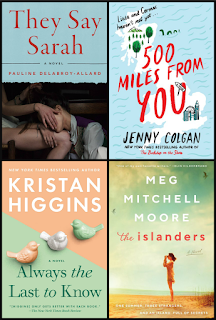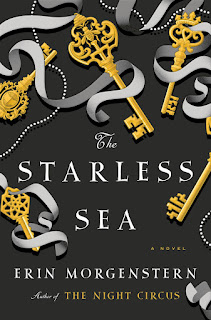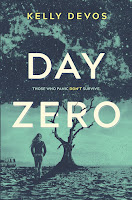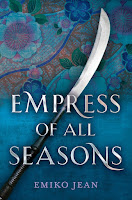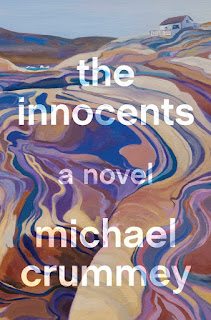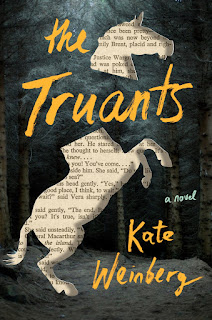14 Nonfiction Books to Read in March
March is a big book month, which means I’ve spotted many, many more great books than I can possibly read in a timely manner. Just because I can’t get to everything, doesn’t mean you can’t.
Here are 14 nonfiction titles that made it to my wish list. So far, I’ve read only one, but I hope to get to most of them—if not this month, then certainly before too long.
Notes: All the following books are coming out this month, according to Edelweiss+. I’ve provided audiobook information when possible. All books were provided to me in one or more formats (print, digital, audio) by the publishers. The descriptions are adapted or taken from the publishers’ summaries. Celebrate Women’s History Month
Celebrate Women’s History Month
- Women in White Coats: How the First Women Doctors Changed the World of Medicine by Olivia Campbell (Park Row): The true story of how, in the Victorian Era, Elizabeth Blackwell, Elizabeth Garrett Anderson, and Sophia Jex-Blake became the first women to earn medical degrees. Not only did they break the glass ceiling, they transformed the nature of women’s healthcare. Audiobook read by Jean Ann Douglass (~11.5 hr).
- The Code Breaker: Jennifer Doudna, Gene Editing, and the Future of the Human Race by Walter Isaacson (Simon & Schuster): You don’t have to be a geneticist to get caught up in and understand this well-researched account of how Doudna and colleagues discovered a way to use CRISPR technology to alter genes, eventually leading to the development of the COVID vaccine. For my thoughts on the audiobook, see AudioFile Magazine. Audiobook read by Kathe Mazur (~16 hr).
- The Agitators: Three Friends Who Fought for Abolition and Women’s Rights by Dorothy Wickenden (Scribner): This an account of how Harriet Tubman, Frances Seward, and Martha Wright formed an unlikely alliance in their fight for abolition and women’s rights in the mid-1800s. Relying on firsthand accounts, including the women’s letters, Wickenden reveals the work of these women starting before the Civil War and ending in the 1880s. Audiobook read by Heather Alicia Simms, Anne Twomey, and Gabra Zackman (11 hr).
- Eleanor in the Village: Eleanor Roosevelt’s Search for Freedom and Identity in New York’s Greenwich Village by Jan Jarboe Russell (Scribner): In 1920, Eleanor Roosevelt left her husband and children, relocating to the Village, where she connected with forward-thinking women of all ilks. This book explores why she took the break, how it changed her, and how it influenced the rest of her life. Audiobook read by Samantha Desz (~6.75 hr).
- Come Fly the World: The Jet-Age Story of the Women of Pan Am by Julia Cooke (Houghton Mifflin Harcourt): This is the story of the women who met the surprisingly stringent requirements to become stewardess for Pan Am in the 1960s and 1970s. We learn more than what it was like to manage disgruntled vacationers; these women were intimately caught up in the effects of the Vietnam War, the civil rights movement, and feminist causes. Audiobook read by Andi Arndt (~7.5 hr).
 Learn about Science and Medicine
Learn about Science and Medicine- Gut Feelings: The Microbiome and Our Health by Alessio Fasano and Susie Flaherty (MIT Press): Many of us are now aware that our gut and the many and varied microorganisms that live there play key roles in our health. This book was written to help us better understand the connection between our microbiome and our current and future physical well-being. This is not a self-help book; it’s an easy-to-understand explanation of how the bacteria that live within us offer numerous benefits. Audiobook: N/A
- Ageless: The New Science of Getting Older without Getting Old by Andrew Steele (Doubleday): Researchers have long been asking whether it’s possible to grow old without getting frail, without weakening immune systems, and without dementia. In this book, Steele presents the current science, medicine, and research concerned with aging and provides commonsense actions we take right now to up our chances of having a vigorous life right up to the end. Audiobook read by the author (10 hr).
- Mr. Humble and Dr. Butcher: A Monkey’s Head, the Pope’s Neuroscientist, and the Quest to Transplant the Soul by Brandy Schillace (Simon & Schuster): This is the biography of Dr. Robert White, who had two identities. On the one hand, the renowned surgeon was a Nobel Prize nominee, developing advances in neurosurgery. But he also hoped to find a way to conduct brain transplantation, thereby allowing “the soul to live on after the human body had died.” His story will make you thankful for today’s ethics committees. Audiobook read by Jean Ann Douglass (~10.75 hr).
 Look at the World around You
Look at the World around You- Empire of Ants: The Hidden Worlds and Extraordinary Lives of Earth’s Tiny Conquerors by Susane Foizik and Olf Fritshe (The Experiment): Think about this: “Ants number in the ten quadrillions and they have been here since the Jurassic era.” This book introduces us to the quintessential picnic pest, revealing their complex social structure, childrearing practices, and political actions. Audiobook: N/A
- The Nation of Plants by Stefano Mancuso (trans. Gregory Conti; Other Press): This is an easy-to-read treatise about the importance of plants to our own lives and to the planet. Mancuso outlines the foundational tenets on which plant life depends and reminds us that if we don’t treat plants well, we’ll soon lose their protective and nourishing benefits. Audiobook read by Nigel Patterson (3 hr).
- Under the Sky We Make: How to Be Human in a Warming World by Kimberly Nicholas (Putnam): If you haven’t noticed that the climate is changing, then you haven’t been outside your house in 10 years or more. In this down-to-earth book you’ll learn that climate change is real, but you’ll also learn that you—yes, you—can make a difference. Nicholas, a climate scientist, tells us just how important it is for each of us to change our behavior: every small change makes a huge difference. Audiobook read by the author (~9 hr).
 Murder through History
Murder through History- A Fatal Thing Happened on the Way to the Forum: Murder in Ancient Rome by Emma Southon (Abrams): On the surface, it appears that Ancient Rome had a different relationship with life and death than we do; after all people came out in droves to watch gladiators fight to the death and they murdered their emperors in public view. Employing her sense of humor and an easygoing style, Southon tells all about Roman murder and culture and notes their relevance to modern times. Audiobook read by Sophie Ward (~11 hr).
- Terror to the Wicked: America’s First Trial by Jury That Ended a War and Helped Form a Nation by Tobey Pearl (Pantheon): In 1638 near Plymouth Colony, a Nipmuc tribesman was robbed and murdered by a white indentured servant. Before he dies, the man reveals the details of the crime and names his killer. This is the story of the ensuing manhunt and the first jury trial by colonizers in the Americas. The case involved famous figures like Myles Standish and everyday citizens who testified before the court and served on the jury. The outcome of this trial had far-reaching consequences for the colonies and the new country to come. Audiobook read by Barrett Leddy (~7 hr).
- The Babysitter: My Summers with a Serial Killer by Liza Rodman with Jennifer Jordan (Atria): In the 1960s, when her mother worked during the day and danced in Provincetown bars at night, Liza and her sister were in the care of a babysitter: a good-looking, nice man who worked as a hotel handyman. When Liza learned that Tony Costa was arrested for brutal murders, she couldn’t reconcile the nice guy who took her for ice cream with the Cape Cod killer. This is her story of the man, how the knowledge of the murders affected her, and how she ultimately coped. Audiobook read by Andi Arndt and Alda Reluzco (~9 hr).



